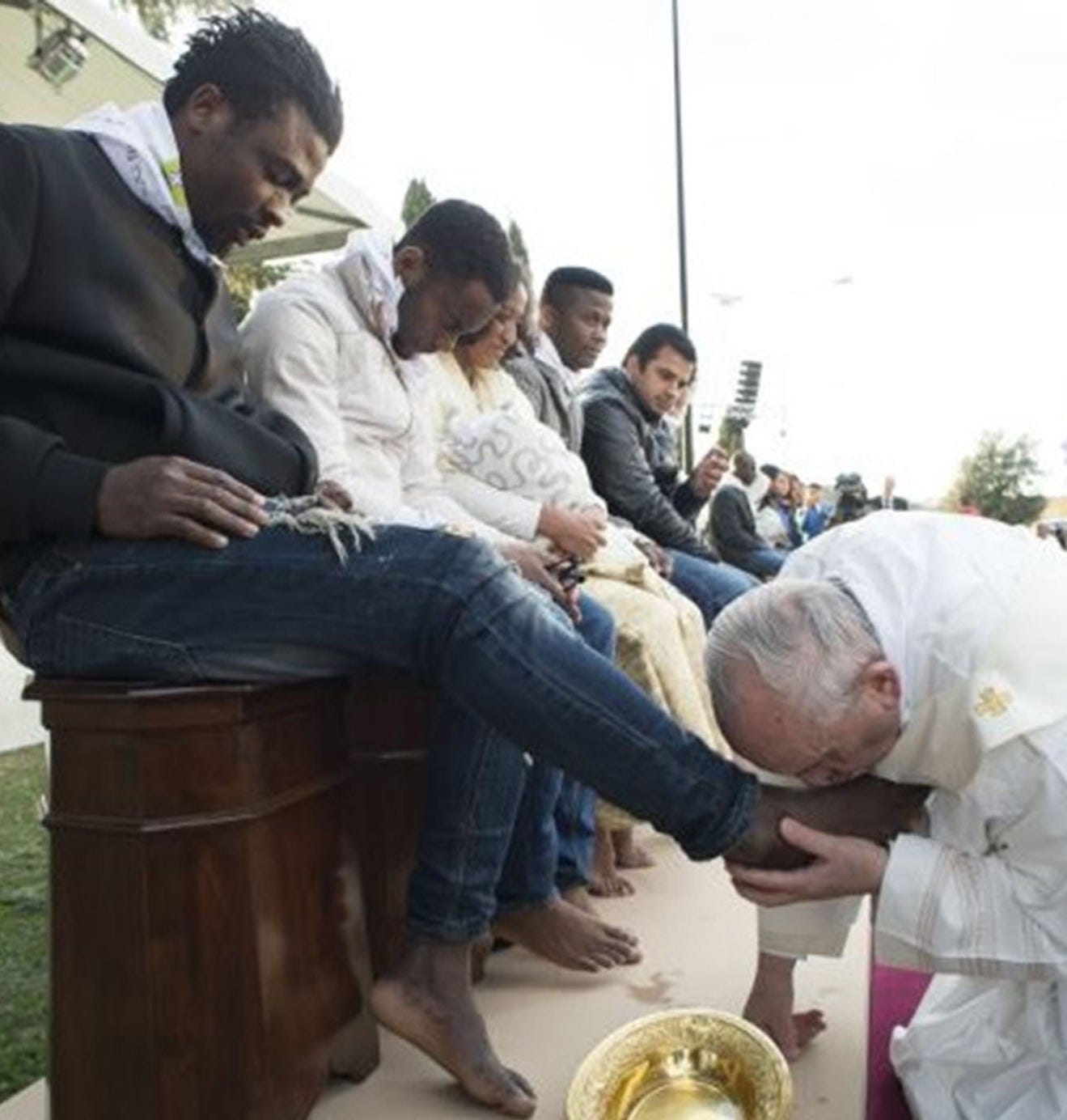Welcome to the Civic Way journal. This is the first essay in a four-part series on faith, politics and the future of the American experiment. The author, Bob Melville, is the founder of Civic Way, a nonprofit dedicated to good government, and a management consultant with over 45 years of experience improving public agencies.
“We are all called to … to build bridges that bring us ever closer together, to avoid walls of ignominy … to give our lives … for the salvation of all … For all of us are children of God!” – Pope Francis
Introduction
Pope Francis, the “People's Pope” and first Latin American (and Jesuit) pontiff, died on April 21st, Easter Monday. He led the Roman Catholic Church for 12 years. Throughout his tenure, he stressed his faith’s virtues of humility, grace, mercy and compassion over the church’s long-standing fidelity to doctrine.
He encountered considerable resistance and failed to fix every church problem—like shrinking congregations, fewer priests, scandal cover-ups and murky finances—but he put the church on a path of openness and inclusion. He may have changed Catholicism less than he hoped, but his impact might be felt for a long time, not just within the church but everywhere.
Some Catholics criticized his efforts to make the church more tolerant and welcoming. Many non-Catholics dismissed his work because of their disdain for the Catholic Church, their doubts about Christianity writ large or their skepticism (or contempt) toward all traditional religions. But, regardless of our religious orientation, we all could benefit from a closer look at Pope Francis.
Opening Doors and Serving People
There is much about Pope Francis’ spiritual leadership during his twelve years at the Vatican to admire. More importantly, there is much to learn from his words and actions.
First and foremost, he infused his papacy with humility and openness. He often shunned the ostentatious frills and sanctity symbols long associated with the Vatican. For example, he chose a modest two-room suite in a Vatican guesthouse rather than the ornate 12-room papal apartment. He set aside the infamous Popemobile. He insisted on wearing plain, simple clothing.
Second, Pope Francis inspired people of all faiths throughout the world (with the likely exception of J.D. Vance). He regularly left the Vatican to visit people where they were, in hospitals, hospices and prisons, on the streets, and in public places. He comforted the abused and overlooked. He traveled to places long ignored by the church, such as China, Africa and Arab states. He built new relationships with those of different faiths. And wherever he went, he touched people with his humility and kindness.
Third, Francis shifted the church’s focus from narrow dogma to broader concerns[i]. He called for stopping wars, protecting nature and helping the poor. He criticized greedy capitalists and cruel immigration policies. He discouraged the denial of communion to pro-choice Catholic politicians. He encouraged honest discussions of controversial (if not taboo) topics. He rarely hesitated to challenge the powerful on behalf of the meek and needy. Above all, he preached the blessings of service and sacrifice.
Fourth, Pope Francis brought an open approach to governance. He tried to streamline the Vatican bureaucracy, labelling it a “ponderous, bureaucratic customs house.” He derided church careerists as “hypocrites” and demoted or replaced many. He made the church leadership more ethnically, geographically and ideologically diverse. He opened confidential bishop meetings to laypeople and, after some early missteps, strengthened accountability for prior church offenses.
Assessing Pope Francis’ Legacy
What will be Francis’ legacy? He was, more than anything else, an outspoken champion of Christianity’s noblest ideals, like those in the Beatitudes and the Sermon on the Mount: humility, empathy, kindness, righteousness, mercy and love. Such ideals are shared by the world’s other traditional religions. Ultimately, Francis’ legacy—as well as the legacy of leaders of other traditional religions[ii]—should be determined by how much these ideals spread throughout the world.
It is too early to know if Pope Francis’ work will continue, but there is reason for hope. Pope Leo XIV, in his first sermon, called on the Catholic Church to challenge the pursuit of “technology, money, success, power, or pleasure.” Leo argued that such false idols erode faith which, in turn, contributes to “the neglect of mercy, appalling violations of human dignity, the crisis of the family and … other wounds that afflict our society.” These words echo those of his predecessor.
The real challenge to Francis’ legacy will likely come not from the Vatican, but rather from American fundamentalists, more specifically those fundamentalists who have distorted Christian teachings in the pursuit of political power. The craven rush by many American religious leaders to persecute groups like homosexuals, migrants and the poor—and ignore serious sins like greed, racism, cruelty and lying—is a profound threat to genuine faith, be it religious or secular.
Pope Francis’ Enduring Message
Pope Francis rose from a humble childhood in Argentina to lead the world’s largest church and over one billion souls. He made that church more inclusive. By shifting its focus from doctrine to compassion, he angered traditionalists within the church, but he reminded the world of Jesus’ most enduring teachings.
He embraced the migrants and impoverished. He embraced the idea that the world can accommodate many religions and built bridges with other faiths. He sought peace, monitored violent conflicts and rebuked the powerful for ignoring climate change and humanitarian tragedies. In short, he often provided a moral lodestar for all people, not just Catholics.
When queried about the Church’s position on homosexuality, Pope Francis asked, “Who am I to judge?” [iii]With only five words, he reminded the world that the obligation of religious leaders is to serve, not judge. He showed millions of Christians the best virtues of their faith—humility, mercy, kindness and love. More important, he showed those of other religions, as well as secularists, the value of faith in something greater than themselves.




